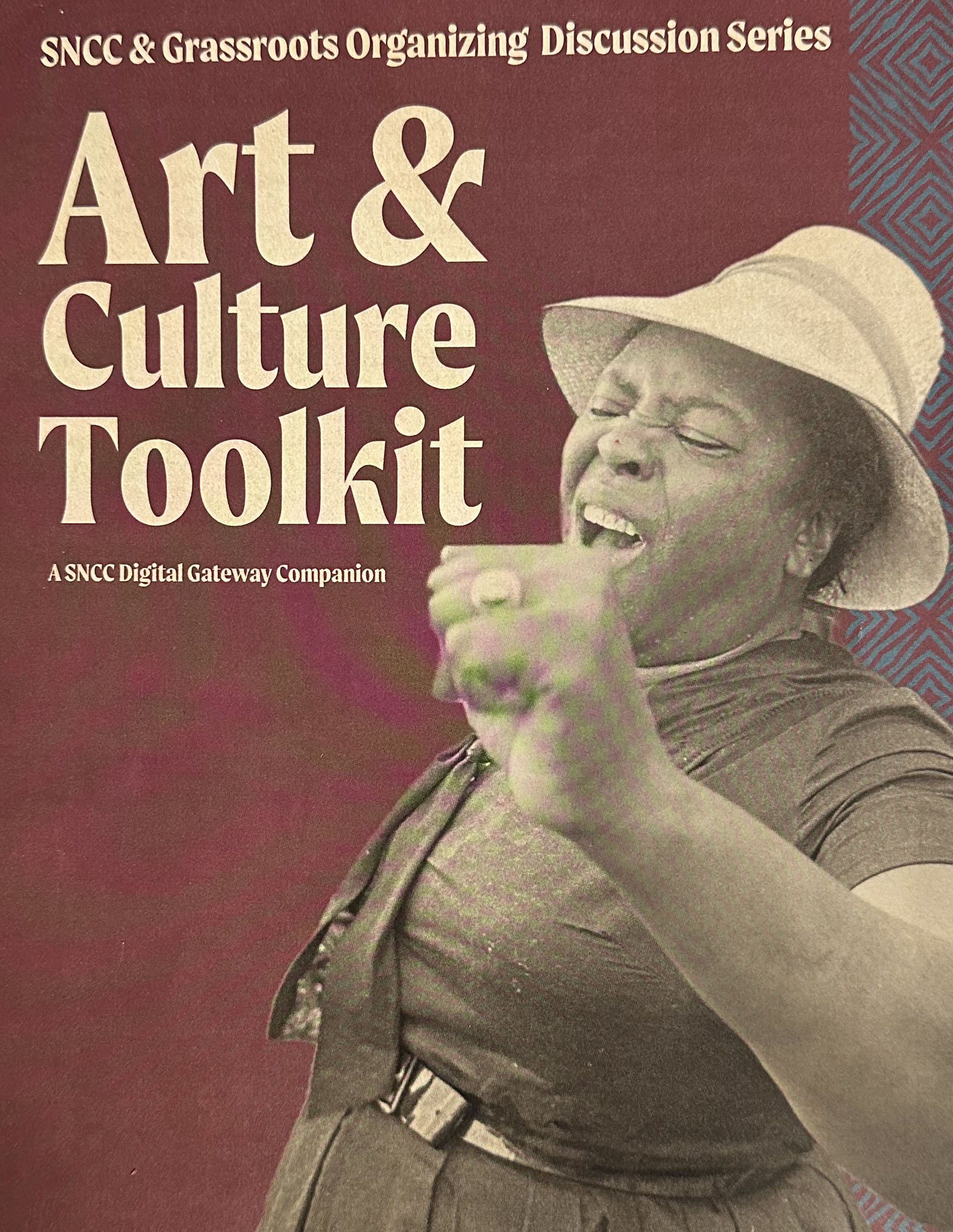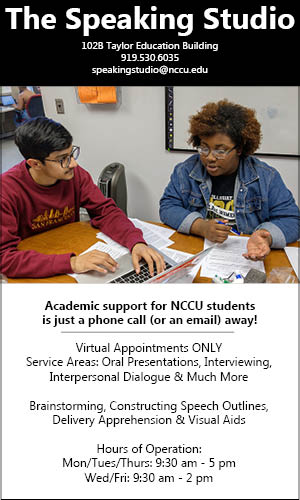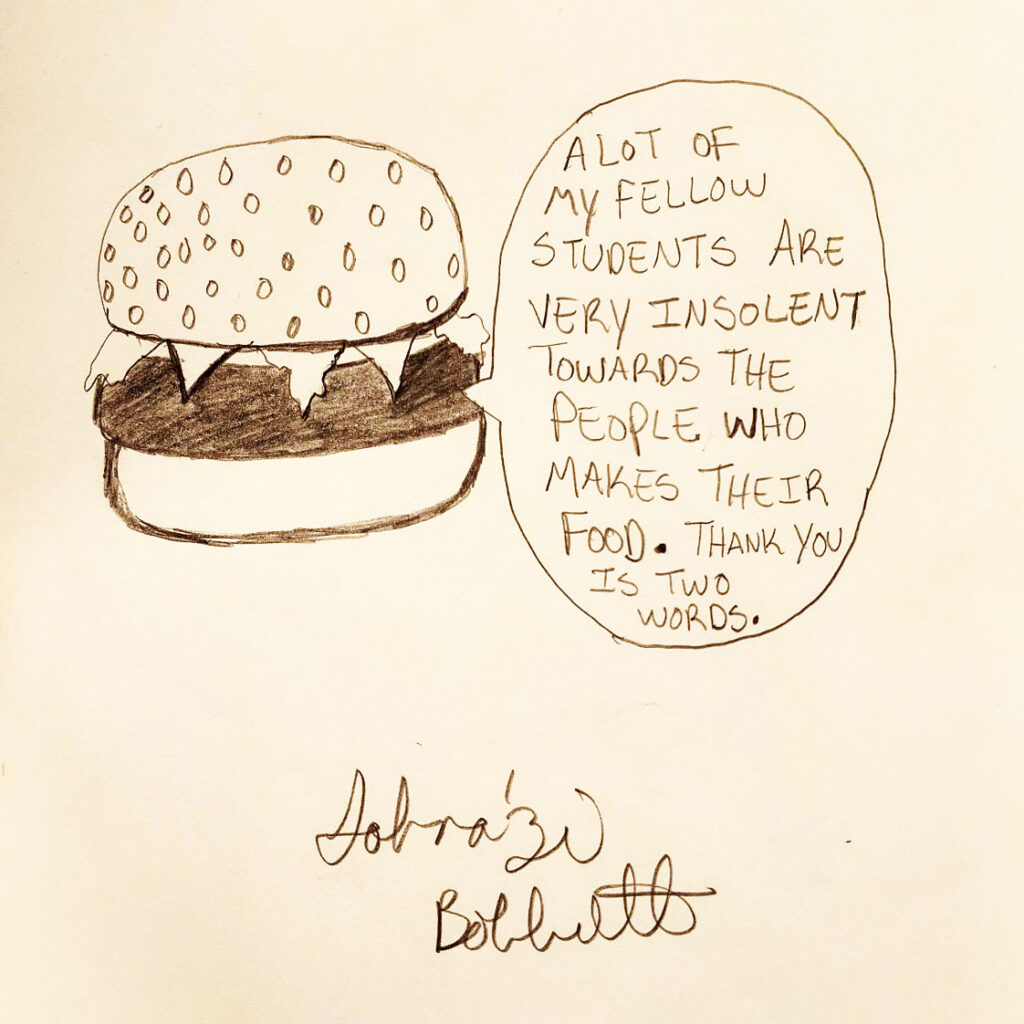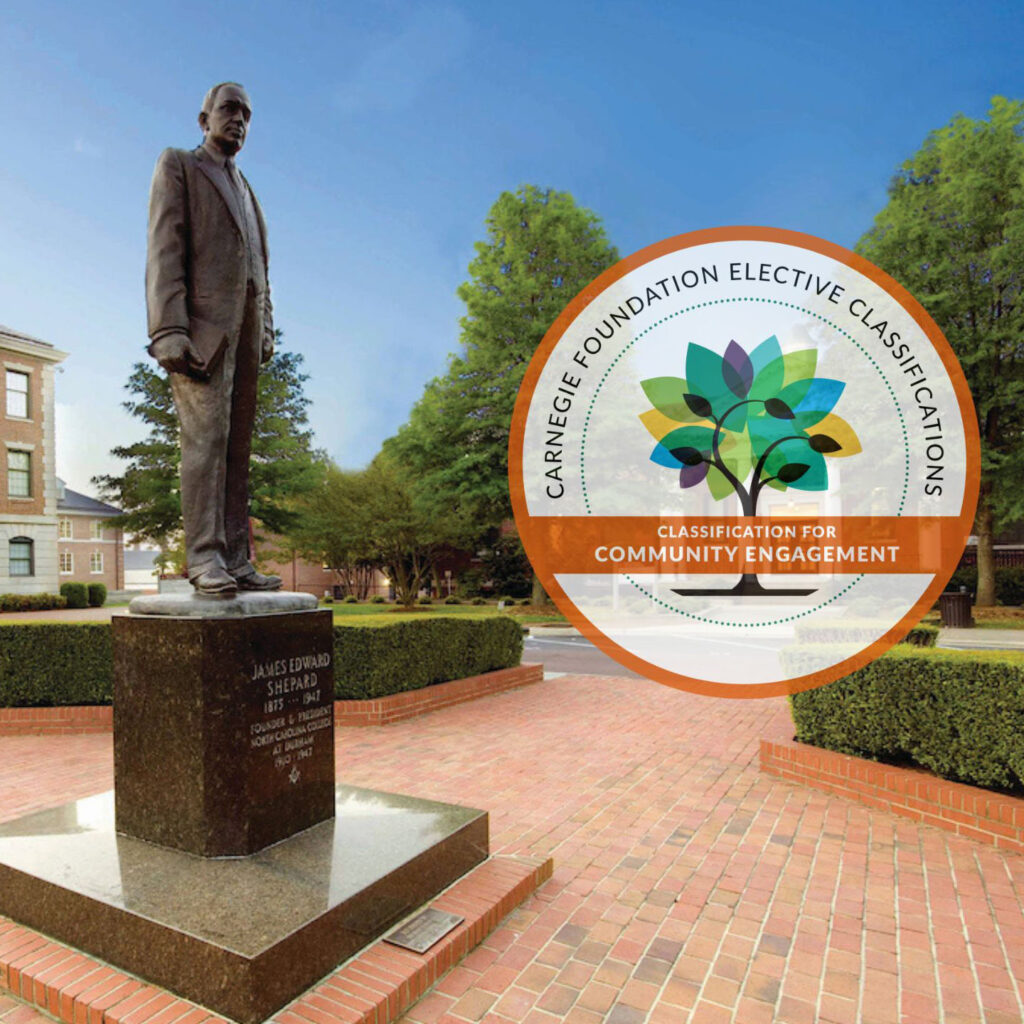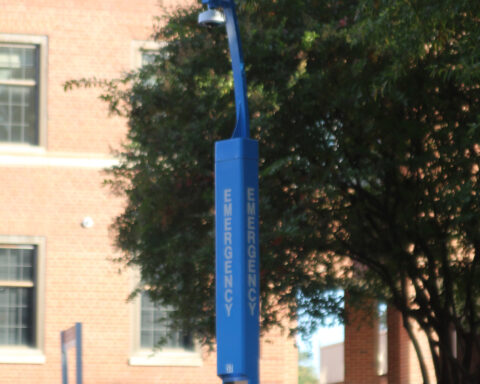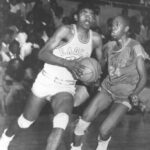SNCC veterans joined N.C. Central University’s Political Science and Law Departments to kick off the SNCC & Grassroots Organizing Discussion Series over a two-day event.
NCCU hosted veterans from the Student Nonviolent Coordinating Committee, or SNCC, marking the commencement of the “SNCC and Grassroots Organizing: Building a More Perfect Union Discussion Series.”
Attending the event were prominent figures from North Carolina and NCCU, including Henry M. “Mickey” Micheaux, the first black representative in the N.C. state legislature for Durham County, N.C. Congresswoman Valerie Foushee, Jarvis Hall, associate professor of political science at NCCU, and Irving Joyner, professor of law at the NCCU School of Law.
The event featured SNCC veteran field secretaries Jennifer Lawson and Charles “Charlie” Cobb, Jr. SNCC Legacy Project Scholars Dr. Wesley Hogan and Joshua Myers also addressed the attendees. Hogan is a research professor at the John Hope Franklin Humanities Institute and History, while Myers serves as an associate professor of Afro-American Studies at Howard University.
“Watching them do that in their 50s, 60s, 70s, and now 80s has just been super inspiring because rather than just having scholars, who go back and try to figure out what happened, we now have the people who made the history, actually telling their history on their own terms, and in their own framework,” Hogan said.
“Watching them do their thing, to create these websites, and do conferences like this, allows us to learn directly from them in their own framework, and there’s nothing that can replace this.”
The series, organized under the SNCC Legacy Project (SLP) and backed by the National Endowment for the Humanities, and John Hope Franklin Humanities Institute at Duke University, is designed to explore six key themes that embrace the history of SNCC. These themes include the organizing tradition, voting rights, Black Power, women and gender, freedom teaching, and art and culture.
The event, hosted at NCCU’s School of Law and Student Center, focused on the intersection of art and culture, and voting rights in SNCC’s history. As the initial stop in a 12-site tour, the SLP plans to visit six Historically Black Colleges and Universities and six African American museums across the country, tracing the path of the civil rights movement.
History of SNCC
SNCC’s origin traces back to 1961 at Shaw University in Raleigh, N.C., following a series of sit-ins challenging segregation, notably beginning with the Greensboro Woolworth Sit-ins on February 1, 1960, staged by students who attended N. C. Agricultural and Technical University.
These events, building on earlier protests like Durham’s 1957 Royal Ice Cream Sit-in, garnered the attention of Ella Baker and, with the support of Rev. Dr. Martin Luther King, Jr., led to the establishment of SNCC. Committed to nonviolent protesting, SNCC sought to advance the Freedom Movement through peaceful tactics.
Art & Culture
Staying true to the theme of art and culture, the first day featured a panel discussion involving SNCC veterans and scholars.
Opening with an interview with Bernice Johnson Reagon, the discourse emphasized the pivotal role of singing in SNCC’s movement building. Commencing with freedom songs, often drawn from traditional Gospel music, these melodies conveyed themes of freedom, fostered a sense of community, and played a crucial role in SNCC’s grassroots organizing.
Lawson, reflecting on her time as a field secretary, underscored the centrality of singing in the movement.
“Most of the mass meetings were a time of singing,” Lawson said. “There was more singing than there was talking.”
According to her, the nurturing aspect of the movement business was primarily conducted through songs, making them the focal point of the activities.
Cobbs, recalling the challenging times in 1960s Mississippi Delta, highlighted the comforting and empowering role of music. It became a source of solace for both the movement’s participants and those hesitant to join. Freedom songs, characterized by positive energy, evolved into affirmations for Black communities in the South.
“The music more than any single thing, in my mind, affirmed that you were on the right path,” Cobbs said.
“Even if there were only a handful of people in a church, that thought resonated far outside of the wall of the church.”
Effective communication was deemed essential for the Freedom Movement. Activities such as art, singing, journalism, and photography were crucial in bringing people together.
Myers emphasized the intangible nature of culture.
“Culture is something you can’t teach, culture is something you feel,” Myers said.
He shared his approach to spending time with students, immersing them in the sounds of the era, and believing that this firsthand connection to the art of the time opens a new world for them. Myers asserted that reciting the art of the era helps students forge deeper connections with the people who lived through those transformative times.
“Art and culture are everything. The way that people learn is through doing, through singing, drawing, sports, being musicians, listening to music, and through dance,” he said.
“We learn much better as humans through play and creative expression,” Hogan added.
Voting Rights
The second segment of the discussion series featured a roundtable delving into SNCC’s role in advancing the fight for voting rights.
Joyner led the presentation, where veterans recounted the challenges of the ‘60s and their efforts to register Black voters. Recognizing the limitations of sit-in actions, SNCC pivoted towards organizing political action.
Congresswoman Foushee delivered a speech underscoring the significance of voting and the sorrow of the diminishing faith in the American electoral process. She highlighted nationwide attacks on voting rights and the erosion of achievements made by SNCC and other civil rights organizations.
Drawing attention to Lowndes County, Ala., dubbed “Bloody Lowndes” and boasting an 81 percent Black population with no Black voters, SNCC, as recounted by veteran Jennifer Lawson, initiated an extensive voter registration campaign. Lawson said SNCC staff produced booklets and comics to educate the public on the roles and responsibilities of public officials, fostering a transformation in perspective.
“It was wonderful to see this whole change, of people, before thinking who would be sheriff, and which white person they would vote for,” Foushee said.
“You could see this transformation taking place, and I think what was so important, was that it was the talk of not just Black Power, but a power that people are beginning to see and feel in themselves.”
The series took an intimate turn in its second half, with Hogan and Lawson guiding attendees into a circle for a community discussion. Starting with the freedom song “Ain’t Gonna Let Nobody Turn Me Around,” the session recreated the ambiance of a mass meeting from the Freedom Movement era.
Ending on a high note and bridging generational gaps, the session concluded with a jubilant rendition of this popular freedom song.
Hope for the Future
In ensuring the comprehensive celebration of each facet of SNCC, the organization has launched the SNCC Digital Gateway and the SNCC Legacy Project websites to disseminate its rich history.
The SLP, created to uphold and extend the work of SNCC, embraces a new approach to preserving the history of the organization through archiving SNCC documents, promoting media made by SNCC veterans, fostering quality education, and cultivating relationships with professors and scholars in higher education institutions.
Hogan said she hopes that students engaging with the series recognize that social movements don’t need reinvention. Instead, she envisions today’s youth drawing inspiration from SNCC figures and encourages young people to draw inspiration from the Art & Culture Toolkit to foster creativity and build their own communities.

